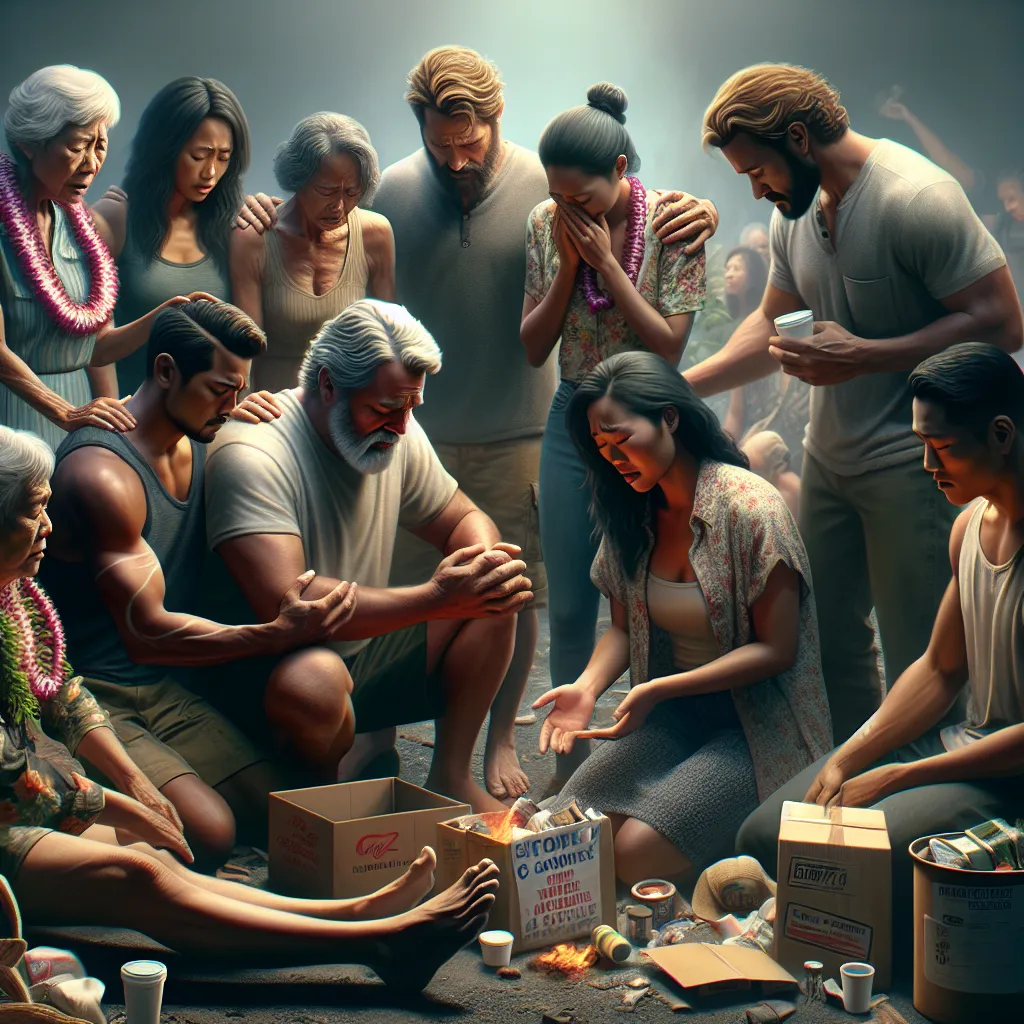Maui: survivors say developers want to buy land with former homes

In Kahului, Hawaii, Tammy Kailau's home is on fire, those fires have taken out the homes of people she knows. Less than a week later, she received a Facebook message from a real estate representative. Residents have been warning each other on social media that developers might try to buy their land, so Kailau shrewdly ignored the suggestion. "Why are they doing this? You know, people burned in the fire," she said Monday. "It's difficult. It's hard, it's very hard. "
Many Maui residents are mourning the loss of their homes and have vowed to stay put after the deadliest U.S. wildfires in the last century destroyed neighborhoods across the island. They worry that if insurance payouts and' 'government aid won't come fast enough, survivors may lose hope and sell the land to those who would radically change their beloved community, which is rapidly gentrifying. Since the fires hit, developers have offered to buy the land islanders and their families have lived on for years, if not generations.
Will some real estate sales in Hawaii be banned after the fires?
John Dimuro, who has lived on the island for more than 40 years and works at a Marriott hotel on Maui's west coast, said locals don't want big companies or rich people buying land and developing it. "The government should just say '\''No, you're not allowed to develop'\'" he said. "Just say no, without'' 'options'.
Hawaii Governor Josh Green says he has asked the state attorney general to explore a moratorium on the sale of damaged or destroyed properties. Green said the fire destroyed more than 2,200 buildings, 86 percent of which were residential. "In addition, I caution people that it's going to take a very long time to get housing starts," he said. "You will be very ill-informed if you try to take land away from our people and then build here. "
Local residents say the governor's words don't scare developers.
Mark Stefl, 67, also says developers came to him and his offer seemed like a blow when he was already in a tight spot. On Monday, Stefl only' 'that he tried unsuccessfully to get a document from the county that would allow him to pass through roadblocks and return to Lahaina, Hawaii's capital in the Kingdom of Hawaii. The century-old city of about 13,000 people was almost completely destroyed by fire last week.
"I don't understand what's happening here. Our government is so incapable," he said. "I'm so angry." He and his wife have their jobs gone, and he fears he will have to keep making mortgage payments on the destroyed property and that he won't get federal assistance because he has insurance. Still, he said, he needs to rebuild.
14 May 2025
14 May 2025
How much does it cost to live on Maui? "
Even before fires destroyed hundreds of homes on Maui, Hawaii suffered from an affordable housing problem caused by international demand to buy second and third homes for vacation or short-term rentals, said Sterling Higa, executive director of Housing Hawaii'\''s Future, an organization that addresses the state's shortage of workforce housing. Higa said developing new housing in Hawaii is very expensive and complicated, driving up prices beyond the means of local families, many of whom work in low-wage service jobs in hospitality and tourism. The average' 'The price of a home on Maui has risen to about $1.2 million, and the median condo price is $850,000. The area, where about 65 percent of residents are people of color, has an average annual income of about $88,000, according to U.S. Census data.
Some residents who have insurance will be able to get compensation. But Higa says many of the homes in Lahaina were old and substandard, making them "difficult for insurers to realize." Higa said some residents may be able to get help from the Federal Emergency Management Agency, "but the procedure is not perfect, and it's possible some people could be left out." "The real danger is that all these recovery reimbursements, if they come''
'after a while, don't always cover the interim rental costs," Higa says. "And Maui already had very high rent prices, so families waiting to rebuild have a tough road ahead of them. " Higa says the government, nonprofits and community organizations must come together to provide refugees with affordable housing and'
's restaurant near Maalai Harbor, says developers have been offering money to people to move for years. Ultimately, he believes multigenerational families will have the power to stay. "It doesn't matter how much money you offer," he says. "No. We're not for sale. It's not for sale.".65-year-old Tammy Kailau lost her home 20 years ago and has been in Lahaina for two days without food after the fire passed through. Now she can't go back and is living in a three bedroom house with 10 other people, including her daughter and granddaughter. She says they've been able to get some supplies and is grateful for the flood of donations, "but the thing is, we're homeless. We don't have a place to go. "
Comment
Popular Posts
Popular Offers

Subscribe to the newsletter from Hatamatata.com!
Subscribe to the newsletter from Hatamatata.com!
I agree to the processing of personal data and confidentiality rules of Hatamatata




